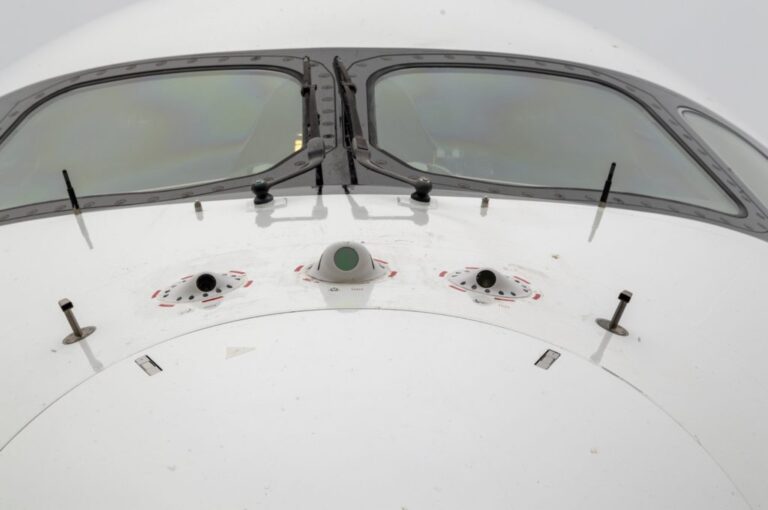Airbus has tested a range of new pilot assistance technologies on its A350-1000 test aircraft. With this, engineers hope to improve flight safety and efficiency.
The two-and-a-half-year DragonFly project is operated by Airbus’ UpNext subsidiary in Toulouse, France. The project aims to develop safety technologies such as automatic emergency diversion during cruises, automatic landing in the event of crew incapacity, and taxi assistance on the ground.
‘)
}
// –>
Dragonfly is evaluating the feasibility of the autonomous technologies and their future usefulness for enhancing flight safety and creating more efficient operations.
During the recent flight test campaign, the technologies were shown to assist pilots in-flight by managing a simulated incapacitated crew member event and during landing and taxiing operations.
The autonomous systems onboard the A350 were able to generate a new flight trajectory plan that accounted for external factors such as flight zones, terrain and weather conditions, while communicating with Air Traffic Control (ATC) and the airline Operations Control Centre.
Isabelle Lacaze, head of the DragonFly demonstrator at Airbus UpNext said, “These tests are one of several steps in the methodical research of technologies to further enhance operations and improve safety.
“Inspired by biomimicry, the systems being tested have been designed to identify features in the landscape that enable an aircraft to ‘see’ and safely maneuver autonomously within its surroundings, in the same way that dragonflies are known to have the ability to recognize landmarks.”
Airbus UpNext has also explored features for taxi assistance, which were tested in real-time conditions at Toulouse-Blagnac Airport. The technology provides the crew with audio alerts in reaction to obstacles, assisted speed control, and guidance to the runway using a dedicated airport map.
In addition, Airbus UpNext is launching a project to prepare the next generation of computer vision-based algorithms to advance landing and taxi assistance.
Data from the testing will contribute to the development of more autonomous aircraft during the next decade.
The Dragonfly demonstrator tests also involved Cobham, Collins Aerospace, Honeywell, French aerospace research agency Onera and Thales and were part-funded by the French and EU Governments.



